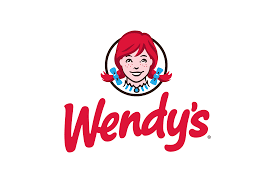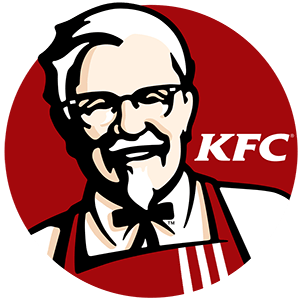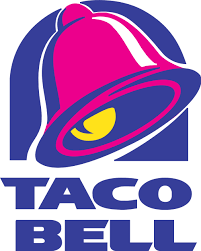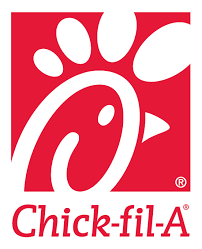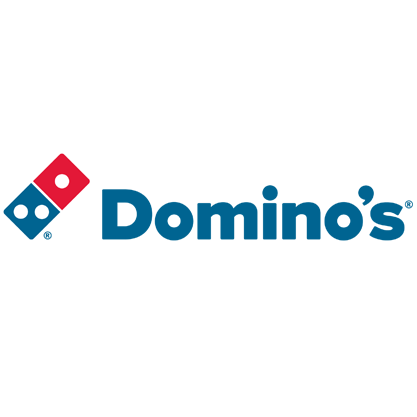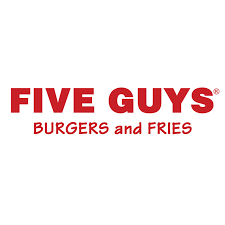McDonald’s Franchise in 2025: Costs, Fee & FDD
Explore McDonald’s iconic rise and franchise opportunities. Learn about costs, potential earnings, and why it’s a top choice for investors. Discover the extensive support and proven business model that makes McDonald’s a global leader in fast food.
Table of Contents:
McDonald’s is one of the most iconic and successful fast food franchises in the world. Founded in 1940 by Richard and Maurice McDonald in San Bernardino, California, the original restaurant focused on a limited menu of high-quality, quick-service items, which laid the foundation for the fast food industry. The breakthrough came in 1954 when Ray Kroc, a Multimixer milkshake machine salesman, joined the company as a franchise agent. Kroc bought the franchise rights from the McDonald brothers and opened the first McDonald’s franchise in Des Plaines, Illinois, in 1955. Under Kroc’s leadership, McDonald’s expanded rapidly, pioneering innovative practices in food preparation, service, and marketing.
Today, McDonald’s operates over 38,000 locations in more than 100 countries, serving approximately 69 million customers daily. The franchise model is integral to McDonald’s success, with over 90% of its restaurants owned and operated by independent franchisees. The company supports its franchisees with comprehensive training programs, marketing support, and a robust supply chain, ensuring consistency and quality across all locations.
McDonald’s menu has evolved over the years to cater to diverse tastes and dietary preferences, offering a wide range of products from its classic Big Mac and french fries to healthier options like salads, fruit, and wraps. Additionally, the company has leaned heavily into technology to improve operational efficiency and customer experience by incorporating self-service kiosks, mobile ordering, and delivery services.
The McDonald’s franchise system is designed to offer a strong support network for its franchisees. The company provides extensive training through Hamburger University, which has graduated over 275,000 franchisees, managers, and employees. Franchisees benefit from McDonald’s global brand recognition, comprehensive marketing campaigns, and a well-established supply chain. McDonald’s also emphasizes community involvement, encouraging franchisees to participate in local events and support charitable initiatives like Ronald McDonald House Charities to drive awareness in their communities. This commitment to community, coupled with a focus on quality, innovation, and customer satisfaction, has cemented McDonald’s position as a leader in the fast food industry and a popular choice for potential franchisees.
McDonald’s Franchise Insights
McDonald’s achieving a 1% year-over-year growth rate in the U.S. marks a significant turnaround, ending a four-year streak of net unit losses from 2019-2022, highlighting renewed franchisee confidence and market stability.
The 2023 median gross sales of $3,837,000, reflecting a 4% increase from 2022, indicate strong financial performance and the potential for lucrative returns for franchisees, underscoring the brand’s robust consumer demand.
Despite operating in the Restaurant and Food industry, which has been significantly impacted by recent inflation, McDonald’s continues to adapt with strategic pricing and cost management to maintain profitability and franchisee support.
One of the key advantages of owning a McDonald’s franchise is the potential for a faster investment payback period through sale-leaseback agreements, providing franchisees with financial flexibility and enhanced liquidity.
McDonald’s Franchise Key indicators
Growth YOY (%)
1%
vs industry -1%
Total U.S. Franchised Units
12,772
Failure Rate
1%
vs industry 4%
Sales-to-Investment ratio
2.4:1
vs industry x:1
How much does it cost to open a McDonald’s franchise?
Before opening a franchise, it is important to understand the potential size of your investment and the capital requirements of McDonald’s.
Min & Max Investment
Opening a McDonald’s franchise involves several key costs, which are outlined in Item 7 of the Franchise Disclosure Document (FDD). you can see a breakdown of the costs to open a McDonald’s below from the most recent Item 7 below:
| Type of Expenditure | Minimum Investment | Maximum Investment |
|---|---|---|
| Initial Franchise Fee | $45,000 | $45,000 |
| Real Estate and Building - 3 Months' rent | $0 | $313,000 |
| Signs, Seating, Equipment, and Decor | $1,100,000 | $1,715,000 |
| Opening Inventory | $20,000 | $39,000 |
| Miscellaneous Opening Expenses | $52,500 | $64,000 |
| Travel and Living Expenses While Traveling | $3,000 | $40,000 |
| Additional Funds - 3 Months | $250,000 | $426,000 |
| Total | $1,470,500 | $2,642,000 |
Item 7 in the Franchise Disclosure Document (FDD) is the “Estimated Initial Investment” section. It outlines the total costs a franchisee can expect to incur when starting a franchise, including the initial franchise fee, equipment, inventory, real estate, and other startup expenses. This section is crucial because it provides potential franchisees with a detailed understanding of the financial commitment required, helping them assess affordability and plan their investment strategy effectively.
Required Capital
To open a McDonald’s franchise, the required capital involves both the initial investment costs and a net worth requirement set by McDonald’s.
- Initial Investment As mentioned, the total estimated initial investment ranges from $1,366,000 to $2,450,000. This includes all the startup costs such as the franchise fee, real estate, construction, equipment, initial inventory, and additional funds for initial operating expenses.
- Liquid Assets Requirement McDonald’s typically requires franchisees to have a minimum of $500,000 in non-borrowed personal resources (liquid assets). This ensures the franchisee has sufficient funds to cover unforeseen expenses and maintain financial stability during the startup phase.
- Net Worth Requirement McDonald’s also assesses the overall net worth of the franchisee. While the specific net worth requirement can vary, it is generally recommended that franchisees have a net worth of at least $1,000,000. This includes the value of assets like real estate, investments, and personal property, minus any liabilities.
How much does a McDonald’s Franchise Owner make?
The earnings and salary of a McDonald’s franchise owner depend on the interplay of gross sales, operational efficiency, franchisor fees, and additional expenses. Effective management of these factors can significantly impact the profitability and financial success of the franchise.
McDonald’s Revenue & Gross Sales
In 2023, McDonald’s franchises achieved an average gross sales of $3,837,000 for free-standing locations, reflecting a 4% increase from the previous year. This strong financial performance underscores the brand’s robust consumer demand and potential for lucrative returns for franchisees.
The improvement in U.S. franchisee gross sales revenue from 2022 to 2023 can be attributed to several key factors. McDonald’s strategic focus on digital transformation, including the expansion of mobile ordering, delivery services, and self-service kiosks, significantly enhanced customer convenience and engagement. The introduction of popular new menu items and limited-time offers also attracted more customers and boosted sales. Additionally, McDonald’s robust marketing campaigns, coupled with an emphasis on value and quality, resonated well with consumers amid economic uncertainties. Operational efficiencies and investments in restaurant modernization further optimized service speed and customer satisfaction, contributing to increased foot traffic and higher average transaction values. These combined efforts resulted in a notable improvement in franchisee gross sales revenue.
McDonald’s franchise operational costs
Operational costs for a franchise like McDonald’s are the ongoing expenses required to run the day-to-day operations of the business. These costs are essential for maintaining the business’s functionality and ensuring smooth operations. For a McDonald’s franchise, operational costs include:
- Food and Beverage Costs The expenses incurred from purchasing raw materials and ingredients needed to prepare the menu items. This includes everything from meat, vegetables, and dairy to beverages and condiments.
- Labor Costs Wages, salaries, and benefits for employees, including hourly workers, managers, and any other staff involved in the daily operations of the restaurant.
- Rent or Mortgage Payments The cost of leasing or owning the property where the restaurant is located. This includes monthly rent or mortgage payments, as well as property taxes and insurance.
- Utilities Expenses for electricity, water, gas, internet, and other utilities necessary for running the restaurant.
- Maintenance and Repairs Costs associated with the upkeep of the building, kitchen equipment, and other fixtures. This includes routine maintenance as well as unexpected repairs.
- Supplies and Inventory This includes everything from kitchen supplies, cleaning products, office supplies, and uniforms to inventory management costs.
- Marketing and Advertising Fees McDonald’s franchisees are required to contribute to national and local advertising funds. These contributions help cover the costs of marketing campaigns and promotions.
- Royalty Fees Ongoing fees paid to McDonald’s for the right to use the brand and operating system. This is typically a percentage of the restaurant’s gross sales.
- Insurance Costs for various insurance policies, including property insurance, liability insurance, and worker’s compensation insurance.
- Technology and Equipment Expenses for maintaining and upgrading point-of-sale systems, kitchen equipment, and any other technological infrastructure.
- Miscellaneous Costs Other operational expenses such as licenses, permits, professional fees (e.g., legal and accounting services), and any other costs that arise from running the business.
Careful planning and budgeting for these operational costs are crucial for the financial health and success of your McDonald’s franchise.
McDonald’s franchise fees
Owning a McDonald’s franchise is different from owning an independent, non-franchised business. All franchises tend to charge ongoing fees that franchisees are required to pay to operate. McDonald’s requires their franchisees to pay the below fees:
- Royalty Fee This is a monthly fee paid to McDonald’s, typically calculated as a percentage of gross sales. For McDonald’s, this fee is usually 4% of the restaurant’s monthly gross sales.
- Advertising and Marketing Fees Franchisees are required to contribute to both national and local advertising funds. The national advertising contribution is generally around 4% of gross sales, while local advertising contributions can vary but are usually around 1-2% of gross sales.
- Additional Fees Depending on the franchise agreement, there may be additional fees for technology support, training programs, and other support services provided by McDonald’s.
These ongoing fees are essential to consider when planning the financial aspects of owning and operating a McDonald’s franchise. They cover the costs of brand support, advertising, and ongoing operational assistance provided by McDonald’s.
McDonald’s franchise earnings
The earnings of a McDonald’s franchise owner can vary significantly based on a variety of factors including location, sales volume, operational efficiency, and cost management. However, on average, McDonald’s franchise owners can expect to earn a significant income.
A McDonald’s unit has an average gross sales of $3,837,000 in 2023. Based off of the average gross sales, we can estimate a McDonald’s franchisee makes $460,000 in estimated earnings (EBITDA) per year, assuming that the franchisee is an owner-operator in the location. This means that you can consider the salary of a McDonald’s franchise owner to be roughly $460,000 in 2023 before interest, taxes, depreciation, and amortization (EBITDA).
If the franchisee is semi-absentee, then earnings will be significantly lower based off of the costs of hiring a manager and/or assistant managers.
How to open a McDonald’s franchise
Becoming a McDonald’s franchisee is a rigorous process that involves financial scrutiny, extensive training, and thorough evaluation. However, it offers the potential for a lucrative business opportunity backed by a globally recognized brand and comprehensive support system.
The full process for how to open a McDonald’s franchise is outlined below:
1. Initial Inquiry and Application
a. Research: Begin by researching the McDonald’s franchise opportunity to understand the requirements, costs, and benefits. You should also conduct thorough research on the franchise, including seeing all of the information available on the Vetted Biz franchise intelligence platform, including access to the most recent Franchise Disclosure Document (FDD).
b. Initial Application: You or your franchise specialist submits an initial inquiry basic information about your interest and background.
2. Financial Review
a. Financial Assessment: McDonald’s will review your financial background to ensure you meet the minimum financial requirements, including having at least $500,000 in non-borrowed personal resources (liquid assets) and a net worth of at least $1,000,000.
b. Documentation: You may need to provide detailed financial documents, such as bank statements, tax returns, and investment records.
3. Interview, Evaluation, and Approval
a. Interviews: If you pass the financial review, McDonald’s will schedule a series of interviews to assess your qualifications, business experience, and alignment with the company’s values and goals.
b. Background Check: A thorough background check will be conducted to verify your personal and professional history.
c. Approval: Assuming that you meet all of the various requirements that McDonald’s imposes on new franchisees, you will be offered to review and sign the Franchise Disclosure Document (FDD). Once you approve and sign their agreement, you will officially become a McDonald’s franchisee.
4. Franchisee Training
a. Training Program: Successful candidates are invited to participate in the McDonald’s training program, which includes a comprehensive curriculum at Hamburger University. The training program can last 12-18 months and covers all aspects of operating a McDonald’s restaurant, including management, operations, customer service, and financial management.
b. Field Experience: In addition to classroom training, candidates gain hands-on experience by working in an existing McDonald’s restaurant.
5. Restaurant Location and Development
a. Site Selection: McDonald’s works with approved franchisees to select a suitable location for the new restaurant. This involves market analysis, site visits, and negotiations.
b. Lease or Purchase Agreement: Depending on the location, you may need to lease or purchase the property. McDonald’s often assists with securing the site.
c. Restaurant Development: McDonald’s provides support for the design, construction, and outfitting of the restaurant, ensuring it meets brand standards.
6. Opening and Ongoing Support
a. Grand Opening: Once the restaurant is ready, McDonald’s assists with planning and executing the grand opening, including marketing and promotional activities.
b. Ongoing Support: After the restaurant opens, McDonald’s continues to provide support in areas such as operations, marketing, training, and technology to help ensure the franchise’s success.
Pros and Cons
Pros:
Brand Recognition: McDonald’s is one of the most recognized brands worldwide, which can attract a large and loyal customer base, providing a significant competitive advantage.
Proven Business Model: McDonald’s has a well-established and successful franchise system with a track record of profitability, providing a clear blueprint for franchisees to follow.
Comprehensive Training and Support: McDonald’s offers extensive training programs through Hamburger University and ongoing support in operations, marketing, and management, helping franchisees achieve operational excellence.
Marketing Power: McDonald’s invests heavily in national and global marketing campaigns, ensuring consistent brand visibility and customer engagement.
Innovation and Adaptation: McDonald’s continuously innovates its menu and operations to meet changing consumer preferences and market trends, keeping the brand relevant and competitive.
Cons:
High Initial Investment: The cost to open a McDonald’s franchise is substantial, with initial investments ranging from $1,366,000 to $2,450,000, which can be a significant financial barrier.
Operational Demands: Running a McDonald’s franchise requires a significant time commitment and hands-on involvement, especially in the initial years, to ensure smooth operations and adherence to company standards.
Market Saturation: In some areas, the market may be saturated with existing McDonald’s locations, potentially limiting growth opportunities and increasing competition among franchisees.
Economic Sensitivity: As with any business in the food and restaurant industry, McDonald’s franchises can be sensitive to economic downturns, high inflation, changes in consumer spending and tastes, and rising costs of goods and labor.



